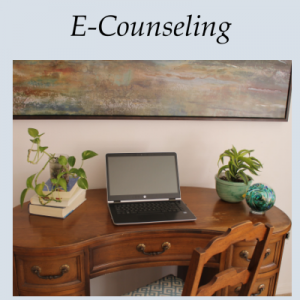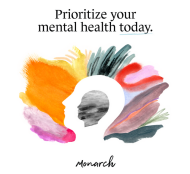Trauma
Are the January Blues Real?
Are the January Blues Real?
A new year can feel hopeful, full of potential, and inspire us to refocus on the impact we want to make in our personal lives and community. It can also highlight challenges and obstacles.
You may be surprised to learn that January is the worst month of the year for depression and anxiety. Yes, the “January blues” are real.
The holidays tend to be a time where we have an abundance of expectations and needs. Post-holiday, we slow down and then have more opportunity to be aware of thoughts and feelings that have arisen over the past weeks.
Processing these can be hard and something we’d like to avoid.
Another contributor to mental health challenges in January is family dysfunction or unresolved childhood trauma, highlighted by the time of year or holidays.
So what can we do to function at our best?
Be Mindful. Pay attention to your moods. Track your thoughts and remember just because you have a thought doesn’t mean you believe it. Notice your expectations. Check in with yourself throughout the day.
Work to identify your feelings and then give yourself permission to acknowledge them. “I notice I am feeling lonely.” While it may seem that “just” acknowledging your emotions isn’t much, the reality is that ignoring them can lead to an increase in anxiety, depression, physical symptoms, and even panic attacks.
Do a feelings versus fact check. Recognize you can have strong, negative feelings AND you can be a good person/be okay. We can get absorbed by our strong emotions and the accompanying physical sensations to the point that our current experience seems like a full representation of what is real. This often leads to a disconnect from what’s true, or what we really believe about ourselves, our situation, and/or others.
Find ways to express and process your feelings such as journaling or a creative outlet;  exercising or yoga; do some focused tapping (the Emotional Freedom Technique/EFT).
exercising or yoga; do some focused tapping (the Emotional Freedom Technique/EFT).
Address your trauma. Trauma affects the brain’s ability to appropriately respond to situations, increasing hypervigilence. A trauma informed counselor can help guide you through resolving the trauma and moving forward toward healing.
Expect challenges rather than focusing on having everything be smooth and controlled. Then trust that you’ll be okay to handle whatever comes up.
Focus on what you can control right now. You may not be able to control the circumstance, but you can attempt to be intentional about your responses to thoughts and feelings.
Reach out for support. Mental health challenges, such as depression and anxiety, often lead us to withdraw. Research shows that social connection can provide a significant amount of support to help us cope and heal. Connect with people you trust and find a counselor to work with, if needed.
to withdraw. Research shows that social connection can provide a significant amount of support to help us cope and heal. Connect with people you trust and find a counselor to work with, if needed.
Kristine Proctor is a licensed clinical social worker providing counseling, both in person and via telehealth, to individual adults in Florida, Michigan, Maine, and around the globe. To contact Kristine click here.
Good Faith Estimates: What You Should Know
Good Faith Estimates: What You Should Know
As of January 1, 2022, there is a new law called the No Surprises Act that requires all health care providers to give clients who don’t have insurance or are not using insurance an estimate of the bill for medical items and services they are to receive because the provider is out-of-network for their benefits.
“Surprise billing” is when you receive a bill with an unexpected balance. This can happen when you cannot control who is involved in your care, such as when you have an emergency hospitalization and a service is provided by an out-of-network provider at an in-network facility.
You have the right to receive a Good Faith Estimate for the total expected cost of any non-emergency items or services. This includes related costs like medical tests, prescription drugs, equipment, and hospital fees. In the case of mental health, it refers to the number of sessions you are likely to have with your mental health professional (a licensed social worker, mental health counselor, marriage and family therapist or clinical psychologist).
Your health care provider should give you a Good Faith Estimate in writing at least 1 business day before your medical service or item. You can also ask your health care provider, and any other provider you choose, for a Good Faith Estimate before you schedule an item or service.
If you receive a bill that is at least $400 more than your Good Faith Estimate, you can dispute the bill.
Make sure you save a copy or picture of your Good Faith Estimate.
If you are a client of my practice, you will have been sent a Good Faith Estimate through the client portal. To view and acknowledge receipt of your Good Faith Estimate, log into your client portal. Your Good Faith Estimate was created based on our current meeting frequency and your session rate but may likely be overestimated, in order to provide you the maximum amount of out-of-pocket expenses for treatment. If additional services are recommended, your Good Faith Estimate will be revised to reflect the change. The estimated costs are good for 12 months after the date of the Good Faith Estimate.
Remember, this is not a bill. If you do not have as many sessions this year as are listed in the estimate, then your costs will be lower than estimated. The Good Faith Estimate includes additional information about your rights and how to learn more. And as always, feel free to reach out to me with any questions you may have.
For more information about your right to a Good Faith Estimate or how to use the dispute resolution process, you can visit www.cms.gov/nosurprises or call 1-800-985-3059.
** The No Surprises Law has already seen several revisions, so it is subject to change. This document on the CMS website currently has an expiration date of 3/31/22.
Find yourself, and be that.

Licensed Clinical Social Worker
EMDR Certified Therapist
112 W. New York Avenue, Suite 205
DeLand, FL 32720
Self-regulation and Mindfulness
As explored in our last blog, the ability to cope with the many challenges of life, whether big or small, and our emotional responses to them, has a relationship with something called self-regulation. Remember, self-regulation is the ability to manage one’s emotions, behavior and body movement when faced with difficult situations.
Below is a follow-up article by my colleague, Joel Bennett, M.Ed., which explores the potential for improving our self-regulation through several mindfulness-based interventions. Joel shares how you can add to your mental health toolbox and positively increase your capacity for self-regulation in several simple, easy to apply ways.
Find yourself, and be that!

Licensed Clinical Social Worker
EMDR Certified Therapist
112 W. New York Avenue, Suite 205
DeLand, FL 32720
Self-regulation and Mindfulness
By Joel A. Bennett, M.Ed.
 Often, through unwritten or unspoken norms, we perceive that our value and worth is tied with action and production. While it is better to think ahead, make previsions for the unknown, and get the laundry done, an often-overlooked aspect of self is quiet mindfulness.
Often, through unwritten or unspoken norms, we perceive that our value and worth is tied with action and production. While it is better to think ahead, make previsions for the unknown, and get the laundry done, an often-overlooked aspect of self is quiet mindfulness.
Is mindfulness the property of Eastern thought and religions? Not according to a study that looked at the correlation between different interventions and their impact on self-regulation (Pandey et al, 2018). Remember, self-regulation includes focusing and maintaining attention, regulating emotion and stress response among many other descriptors (Blair and Raver, 2015, Pandey et al, 2018). With constant action and minimal or unintentional awareness of what “is”, our ability to control our emotions and stress responses suffers.
What is mindfulness? Mindfulness can be defined as practicing awareness of what is, internally as well as externally (Pandey et al, 2018). Okay, but what framework would support me in learning to perform mindfulness activities? I will give three examples of what mindfulness activities may look like.
Mindful Breaths
When you control your breathing, you can control many parts of how you experience life. When you sit up straight, you allow your nerves and air way to work as they were designed. Breathe in through your nose slowly. Feel the air filling your lungs and then pushing down into your belly. Sit with your belly full for 4 seconds and then let the air escape slowly out of your mouth. We will call this 4-4-4 breathing. 4 counts in, 4 counts hold, and 4 counts exhale. Go ahead, pause and practice right now. (Sit straight, with feet flat on the floor, count out loud or in your head. Think: inhale, hold and exhale.) Build up your tolerance for how long you can sustain this purposeful breathing activity. Most individuals struggle doing this for more than a minute at first. The Navy Seals do a similar activity they call squared breathing. They count to 5 and they add the empty lungs to the end of the activity just described. Pick a time during the day and practice your mindful breathing. Prevention and habit have been shown to impact emotion and stress responses (Galla & Duckworth 2015).
Foghorn
 Another breath activity is called the Foghorn. This is an interesting option for those that are not self-conscious or are able to have a few minutes in a location no one is able to hear you. Sit up straight or stand and correct your posture, place your fingers on your neck just below your jaw, and feel the vibrations as you exhale through your mouth, supported by your diaphragm. Make a low rumble type noise like a foghorn. This works with your mouth open or closed. This activity engages the vagus nerve and helps to calm emotions.
Another breath activity is called the Foghorn. This is an interesting option for those that are not self-conscious or are able to have a few minutes in a location no one is able to hear you. Sit up straight or stand and correct your posture, place your fingers on your neck just below your jaw, and feel the vibrations as you exhale through your mouth, supported by your diaphragm. Make a low rumble type noise like a foghorn. This works with your mouth open or closed. This activity engages the vagus nerve and helps to calm emotions.
Planted Seed
 Make your spine straight again. In this activity you will choose an external quote or phrase that you believe to be true towards you. You might think of the words of a friend sharing their appreciation for your kindness and generosity. For someone with a spiritual frame of reference an example might be a Biblical promise such as Deuteronomy 31:6 which says, “Be strong and courageous, do not be afraid. The Lord your God will never leave you nor forsake you”. Now pick one of the words or words that attracts your attention, such as kind, generous, courageous, or never leave you and imagine it is a little seed. Imagine planting that little seed inside your heart. Do the mindful breaths and imagine it growing and growing inside of you. Sit with the seed. Imagine those words seeping into your bone marrow.
Make your spine straight again. In this activity you will choose an external quote or phrase that you believe to be true towards you. You might think of the words of a friend sharing their appreciation for your kindness and generosity. For someone with a spiritual frame of reference an example might be a Biblical promise such as Deuteronomy 31:6 which says, “Be strong and courageous, do not be afraid. The Lord your God will never leave you nor forsake you”. Now pick one of the words or words that attracts your attention, such as kind, generous, courageous, or never leave you and imagine it is a little seed. Imagine planting that little seed inside your heart. Do the mindful breaths and imagine it growing and growing inside of you. Sit with the seed. Imagine those words seeping into your bone marrow.
Remember, the phrase you choose must be something that you truly believe.
Build the Habit
There are myriad frameworks to practice mindfulness. Don’t allow the sheer volume of options overwhelm you. Choose one or two and begin to make it a daily habit. By so doing, you will improve your body’s ability to regulate emotions and stress responses.
Joel Bennett, M.Ed.
Blair, C., & Raver, C. C. (2015). School Readiness and Self-Regulation: A Developmental Psychobiological Approach. Annual Review of Psychology, 66, 711-731.
Galla, B. M., & Duckworth, A. L. (2015). More than resisting temptation: Beneficial habits mediate the relationship between self-control and positive life outcomes. Journal of Personality and Social Psychology. 109(3), 508-525. Doi:10.1037/pspp0000026
Pandey, A., Hale, D., Das, S., Goddings, A. L., Blakemore, S. J., & Viner, R. M., (2018). Effectiveness of Universal Self-regulation – Based Interventions in Children and Adolescents: A Systematic Review and Meta-analysis. JAMA Pediatrics, 172(6), 566-575. https://doi-org.wgu.idm.oclc.org/10.1001/jamadediatrics.2018.0232
Self Regulation Introduction
 In dealing with the pandemic and the plethora of problems it has brought into people’s lives over this past year, many have recognized the necessity of intentionality in the area of mental health. This new, or renewed, curiosity about how to keep oneself healthy in the face of experiencing such a variety of disruptive events, has elicited many varying responses. These high levels of emotional bombardment and our responses can often generate additional anxiety and stress, and in some instances can lead to higher incidences of depression. The ability to cope with many of these things has a relationship with something called self-regulation, which is the ability to manage one’s emotions, behavior and body movement when faced with difficult situations.
In dealing with the pandemic and the plethora of problems it has brought into people’s lives over this past year, many have recognized the necessity of intentionality in the area of mental health. This new, or renewed, curiosity about how to keep oneself healthy in the face of experiencing such a variety of disruptive events, has elicited many varying responses. These high levels of emotional bombardment and our responses can often generate additional anxiety and stress, and in some instances can lead to higher incidences of depression. The ability to cope with many of these things has a relationship with something called self-regulation, which is the ability to manage one’s emotions, behavior and body movement when faced with difficult situations.
When attempting to understand this phenomenon, it is not uncommon to confuse “self-control” with “self-regulation.” Self-control is the ability to keep emotions and impulses in check, both when alone and in social situations. Many of our current situational responses to mask-wearing for example, have to do with self-control, whereas the fears or anxiety one may feel about the pandemic has more to do with self-regulation. However, both are skills that can be developed over time.
In my practice, I have found that many clients struggle with self-regulation, not knowing what it is or how to help themselves. These struggles often lead to greater difficulties in responding emotionally in certain situations where one might find conflict between the ability to self-regulate and self-control. This mismatch often increases stress and anxiety, has implications with anger management, and communication with others. It can cause despair and depression, relationship difficulties, or in extreme cases even violence or abuse.
In learning to practice better self-regulation, one might improve self-esteem and self-confidence, as well as find an overall reduction in some of the symptoms related to the distress and psychological turmoil they may be feeling.
Below is an article by my colleague, which explores the potential for improving our self-regulation. Several followup articles will explore the concept further, sharing examples of what self regulation really is and how to improve it through techniques such as mindfulness-based interventions, cognitive reframing (changing thoughts), and other emotional regulation strategies.
Find yourself, and be that!

Licensed Clinical Social Worker
EMDR Certified Therapist
112 W. New York Avenue, Suite 205
DeLand, FL 32720
Introduction to Self-Regulation of Youth and Adolescence
By Joel A. Bennett, M.Ed.
 “Why can’t you control your meltdowns?” “Why is it so hard to focus on what you are working on?” “Why do your emotions swing so far so fast?” As a parent and educator, with 15 years in both the classroom and the home, I have heard these questions and others like them from many other parents, as well as pondered them myself. Is it only anecdotal stories that make me think that Americans are decreasing in their ability to control themselves, their emotions, their responses? Psychology has developed the umbrella idea of self-regulation which encompasses our ability to self-monitor, –evaluate, –react, –judge. It includes focusing and maintaining attention as well as physiologically controlling our stress response (Cellar et al, 2011, Blair and Raver, 2015, Pandey et al, 2018).
“Why can’t you control your meltdowns?” “Why is it so hard to focus on what you are working on?” “Why do your emotions swing so far so fast?” As a parent and educator, with 15 years in both the classroom and the home, I have heard these questions and others like them from many other parents, as well as pondered them myself. Is it only anecdotal stories that make me think that Americans are decreasing in their ability to control themselves, their emotions, their responses? Psychology has developed the umbrella idea of self-regulation which encompasses our ability to self-monitor, –evaluate, –react, –judge. It includes focusing and maintaining attention as well as physiologically controlling our stress response (Cellar et al, 2011, Blair and Raver, 2015, Pandey et al, 2018).
Wow! That sounds exactly like the types of problems parents and my colleagues have been noticing! Because my personal and professional observations align with these observations, I wondered, “If this umbrella idea of self-regulation has been identified, is there evidence on how to improve these abilities?” I looked at 18 peer-reviewed articles focused on youth and adolescence (2-18-year-olds) and found clear demonstration that, YES, SELF-REGULATION CAN BE IMPROVED!
A very helpful way of looking at improving self-regulation is to break the problem into two realms of focus: biological and cognitive (Cole, Ram, & English, 2019). Think of this scenario: You are walking from your room for your morning coffee when you step on your child’s cars that were left in the hallway. You went to bed late, woke up with a tremendous agenda that may or may not get finished before you must run your kids to appointments. You are not biologically at your peak. Maybe not even in your top 75%. If you have had a moment like the one I just described, you may recall responding in a way you were regretful about later. I know I have asked for forgiveness after moments like this. Cole, Ram, and English (2019) lump exhaustion, hunger, lack of rejuvenation, and the like into the biological realm.
Our children find themselves in this predicament many times, too. Many parents instinctively pack snacks, create routines for sleeping, exercise, fresh air, and quiet time into the day-to-day rhythm. Galla and Duckworth (2015) found that building beneficial habits provides the strongest positive life outcomes. A quick snack or regular waking and sleeping schedule may address an individual’s ability to control impulses, maintain focus or self-awareness and become the least costly solution to improved self-regulation.
The second realm to consider when looking at ways to improve self-regulation is the cognitive. Do we have the neurological pathways to respond, to control, to become aware of ourselves? These neuropathways are developed in the context of our relationships rather than individually. It has been demonstrated that high doses of parent-child “attunement,” a neurologically synchronized give and take, co-creation experience, have significant impact in the youth who experienced the ongoing activities with the parents (Davis, Bilms, & Suveg, 2017). Another give and take role playing model was found in the Tools of the Mind preschool and Kindergarten curriculum. This curriculum utilizes mature, dramatic play to improve executive function (Diamond, Barnett, Thomas, & Munro, 2007). It ought not to be a surprise that traditions from the past that have been cast aside, such as family dinners where people look at one another and engage in the give and take of creating a space or Holy Days with traditions and engagement or walks in nature, were more valuable than we previously thought. These former traditions provided regular and routine opportunities to attune to our loved ones and invest in their neurological abilities to self-regulate!
And while it is true that past traumas of rejection, attachment issues and disorders, or harms play a strong role in self-regulation, we can make progress and strengthen the positive alternatives to dysregulation by considering the push and pull relationship between the biological and the cognitive.
Blair, C., & Raver, C. C. (2015). School Readiness and Self-Regulation: A Developmental Psychobiological Approach. Annual Review of Psychology, 66, 711-731.
Cellar, D., Stuhlmacher, A., Young, S., Fisher, D., Adair, C., Haynes, S., …Riester, D. (2011). Trait Goal Orientation, Self-regulation, and Performance: A Meta-Analysis. Journal of Business and Psychology, 26(4), 467-483. https://doi-org.wgu.idm.oclc.org/10.1007/s10869-010-9201-6
Cole, P.M., Ram, N., & English, M.S. (2019). Toward a Unifying Model of Self-regulation: A Developmental Approach. Child Development Perspectives, 13(2), 91-96. https://doi-org.wgu.idm.oclc.org/10.1007/s10802-010-9418-x
Davis, M., Bilms, J., & Suveg, C. (2017). In Sync and in Control: A Meta-Analysis of Parent-Child Positive Behavioral Synchrony and Youth Self-Regulation. Family Proces, 56(4), 962-980. https://doi-org.wgu.idm.oclc.org/10.1111/famp.12259
Diamond, A., Barnett, W.S., Thomas, J., & Munro, S. (2007). Preschool Program Improves Cognitive Control. Science, November 30; 318(5855): 1387-1388.
Galla, B. M., & Duckworth, A. L. (2015). More than resisting temptation: Beneficial habits mediate the relationship between self-control and positive life outcomes. Journal of Personality and Social Psychology. 109(3), 508-525. Doi:10.1037/pspp0000026
Pandey, A., Hale, D., Das, S., Goddings, A. L., Blakemore, S. J., & Viner, R. M., (2018). Effectiveness of Universal Self-regulation – Based Interventions in Children and Adolescents: A Systematic Review and Meta-analysis. JAMA Pediatrics, 172(6), 566-575. https://doi-org.wgu.idm.oclc.org/10.1001/jamadediatrics.2018.0232
Welcome to Kristine’s Mental Health Blog

Hello,
This blog includes my professional reflections and comments, as well as hyperlinks to articles and videos that can be beneficial to your mental health. Visit this page to find up-to-date information to support your journey.
Find yourself, and be that!

